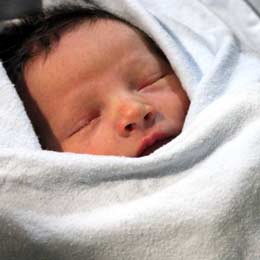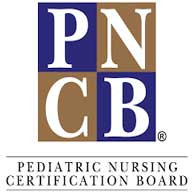Diphtheria, tetanus, and pertussis are serious diseases caused by bacteria.
Why get your child vaccinated?
Diphtheria, tetanus, and pertussis are serious diseases caused by bacteria. Diphtheria and pertussis are spread from person to person. Tetanus enters the body through cuts or wounds.
TETANUS (Lockjaw) causes painful tightening of the muscles, usually all over the body. It can lead to “locking” of the jaw so the victim cannot open his mouth or swallow. Tetanus leads to death in up to 2 out of 10 cases.
PERTUSSIS (Whooping Cough) causes coughing spells so bad that it is hard for infants to eat, drink, or breathe. These spells can last for weeks. It can lead to pneumonia, seizures (jerking and staring spells), brain damage, and death.
Diphtheria, tetanus, and pertussis vaccine (DTaP) can help prevent these diseases. Most children who are vaccinated with DTaP will be protected throughout childhood. Many more children would get these diseases if we stopped vaccinating. DTaP is a safer version of an older vaccine called DTP. DTP is no longer used in the United States.
When should your child get the DTaP vaccine?
Children should get 5 doses of DTaP vaccine, one dose at each of the following ages:
- 2 months
- 4 months
- 6 months
- 15-18 months
- 4-6 years
DTaP may be given at the same time as other vaccines.
Other Routine Immunizations We Provide
- Diphtheria, Tetanus, and Pertussis (DTaP)
Diphtheria, tetanus, and pertussis are serious diseases caused by bacteria. Diphtheria and pertussis are spread from person to person. Tetanus enters the body through cuts or wounds.
- Hepatitis A
Hepatitis A is a serious liver disease caused by the hepatitis A virus (HAV). HAV is spread from person to person through contact with the feces (stool) of people who are infected, which can easily happen if someone does not wash his or her hands properly.
- Hepatitis B
Hepatitis B is a serious disease that affects the liver. It is caused by the hepatitis B virus. Hepatitis B can cause mild illness lasting a few weeks, or it can lead to a serious, lifelong illness.
- Hib (Haemophilus Influenzae Type B)
Haemophilus influenzae type b (Hib) disease is a serious disease caused by bacteria. It usually affects children under 5 years old. It can also affect adults with certain medical conditions.
- HPV
HPV vaccine prevents infection with human papillomavirus (HPV) types that are associated with many cancers.
- Influenza – Inactivated
Influenza or “flu” is a contagious disease that spreads around the United States every year, usually between October and May.
- Measles, Mumps, Rubella (MMR)
Measles, Mumps, Rubella, and Varicella (chickenpox) can be serious diseases. These diseases can spread from person to person through the air. Varicella can also be spread through contact with fluid from chickenpox blisters.
- Measles, Mumps, Rubella & Varicella (MMRV)
Measles, Mumps, Rubella, and Varicella (chickenpox) can be serious diseases. These diseases can spread from person to person through the air. Varicella can also be spread through contact with fluid from chickenpox blisters.
- Meningococcal Conjugate Vaccines (MCV)
Meningococcal disease is a serious illness caused by a type of bacteria called Neisseria meningitidis. It can lead to meningitis (infection of the lining of the brain and spinal cord) and infections of the blood.
- Serogroup B Meningococcal (MenB)
Meningococcal disease is a serious illness caused by a type of bacteria called Neisseria meningitidis. It can lead to meningitis (infection of the lining of the brain and spinal cord) and infections of the blood.
- Pneumococcal Conjugate (PCV13)
Pneumococcal disease is caused by bacteria that can spread from person to person through close contact. It can cause ear infections, and it can also lead to more serious infections .
- Polio
Polio is a disease caused by a virus. It is spread mainly by person-to-person contact. It can also be spread by consuming food or drinks that are contaminated with the feces of an infected person.
- Rotavirus
Rotavirus is a virus that causes diarrhea, mostly in babies and young children. The diarrhea can be severe, and lead to dehydration.
- Tdap (Tetanus, Diphtheria, Pertussis)
Tetanus, diphtheria, and pertussis are very serious diseases. Tdap vaccine given to pregnant women can protect newborn babies against pertussis.
- Varicella (Chickenpox)
Chickenpox (also called varicella) is a common childhood disease. It is usually mild, but it can be serious, especially in young infants and adults.
Immunization Schedules from the CDC
Easy-to-read formats to print, tools to download, and ways to prepare for your office visit.

















